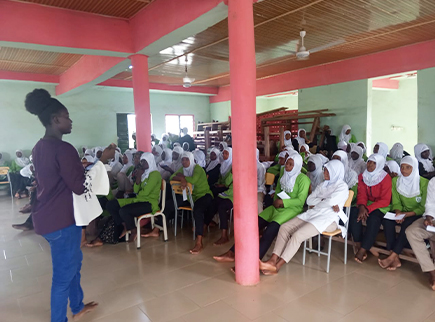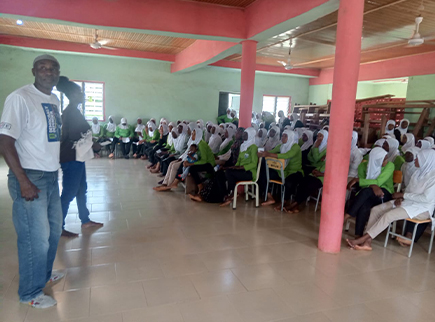The Ghana Anti-Corruption Coalition (GACC) has empowered young people in the Upper West Region to rise against corruption in all its forms to help build an inclusive nation for all through equitable access to resources and opportunities.
The Coalition observed that corruption continued to undermine Ghana’s development, deepen inequality, and erode public trust in institutions, and young people endured the most of its consequences.
“The GACC recognises that empowering youth to stand against corruption is a critical step toward building a fairer, more inclusive Ghana where development benefits all, not just a few,” Mrs Beauty Emefa Narteh, the Executive Secretary of the GACC, said.
Mrs Narteh said this in a speech read on her behalf at the corruption sensitisation campaign in Wa at the weekend as part of the celebration of the 2025 African Union Anti-Corruption Day on the theme: “Justice for Africans and People of African Descent through Reparations”.
The Coalition engaged students at the Northern Star Senior High School and the Wa Technical Institute to sensitise them on the need to fight against corruption through “Resisting, Rejecting, and Reporting corruption.”
The 2025 African Union Anti-Corruption Day renewed the call for bold, inclusive, and united action to tackle the persistent scourge of corruption in Africa.

With support from the Hewlett Foundation, the GACC sought to raise awareness about corruption, promote civic engagement, and encourage whistleblowing as part of its anti-corruption campaign.
Mrs. Narteh lamented the impact of corruption on Ghana’s development, citing the 2023 Auditor-General’s Report, which revealed that the country lost over GH¢11 billion to financial irregularities.
She said monies lost to corruption could have been invested in improving the country’s education and healthcare systems and creating job opportunities for all citizens.
“Corruption disrupts access to quality education, reduces job prospects, limits opportunities, and undermines trust in public systems.
These realities make it more challenging for young people to envision a future built on fairness and integrity,” Mrs. Narteh explained.
She said the Coalition would leverage platforms such as schools, religious, social, community and media platforms to motivate young people to lead with integrity, demand accountability from duty bearers and report corruption.
Ms. Amanda Wiesekor Tembile, a GACC’s Local Accountability Network (LANet) Executive Member in Wa, exposed the students to Ghana’s Anti-Corruption legislations such as the Whistleblower Act 2006 (Act 720), encouraging them to take advantage of those legislations to expose corruption.
She explained that the Whistleblower Act, for instance, protected the identity of the person reporting corruption.
Ms. Tembile reminded the students that anti-corruption should start with them by resisting, rejecting, and reporting it to the appropriate authorities.

